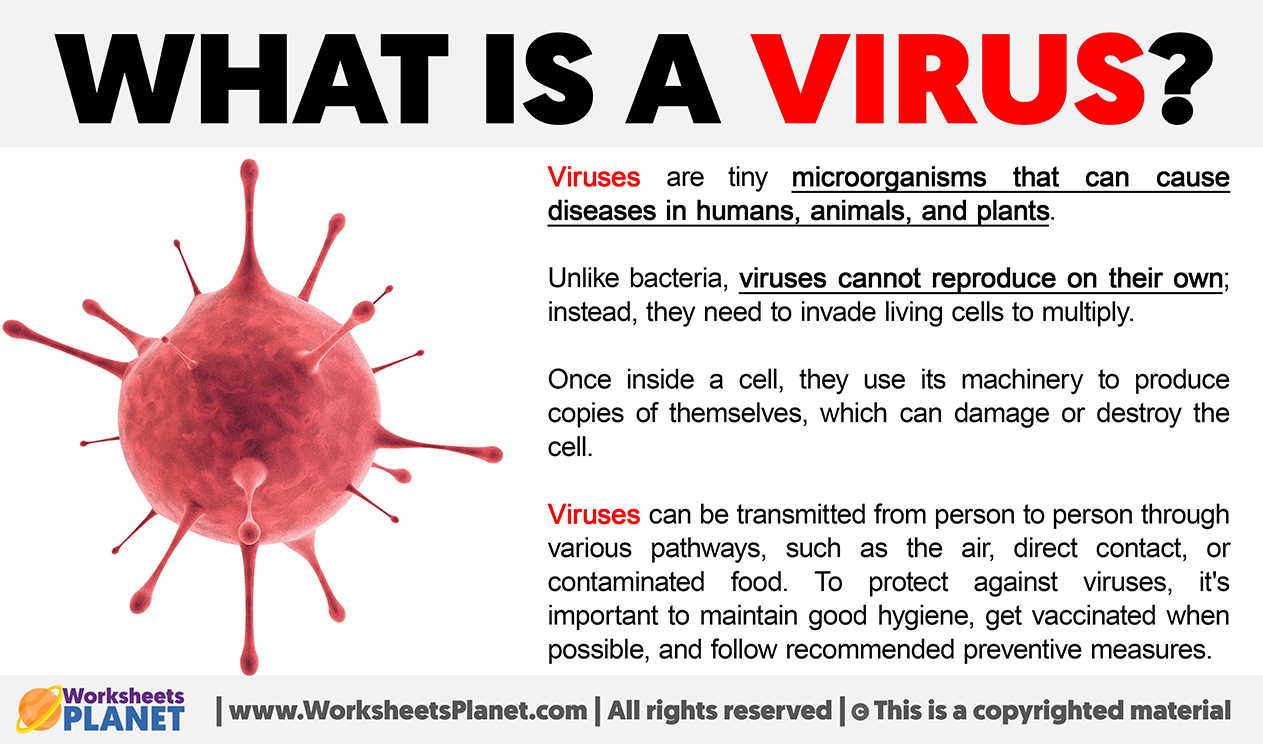Viruses are tiny microorganisms that can cause diseases in humans, animals, and plants. Unlike bacteria, viruses cannot reproduce on their own; instead, they need to invade living cells to multiply.
Once inside a cell, they use its machinery to produce copies of themselves, which can damage or destroy the cell.
Viruses can be transmitted from person to person through various pathways, such as the air, direct contact, or contaminated food. To protect against viruses, it’s important to maintain good hygiene, get vaccinated when possible, and follow recommended preventive measures.


